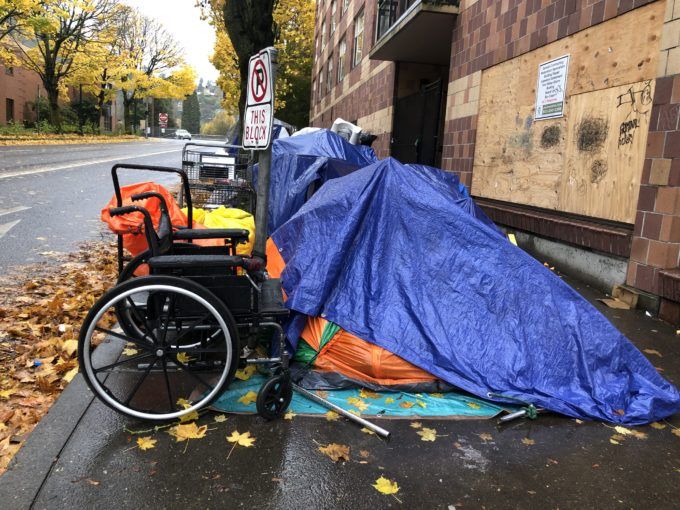
Photograph by Nathaniel St. Clair
I spent every bit of free time in my final semester at Villanova University fighting a lawsuit that could make life for me as a disabled American very difficult.
As a low vision student, I’ve relied on Section 504 of the Rehabilitation Act of 1973 for nearly my entire life. It’s one of our most important disability laws in the United States.
Section 504 helps 1.6 million students with ADHD, autism, diabetes, dyslexia, and other conditions receive accommodations in public school — like needed medications, sign language interpretation, and wheelchair access.
I can’t see well enough to read print. But thanks to Section 504, I always received Braille or auditory materials in school. I’ve been able to learn alongside my peers, not segregated on the basis of my disability. And if I’m qualified for a job that receives federal funding, an employer can’t refuse to hire me due to my disability.
Section 504 has been the foundation of disability law in the country for 50 years and codifies the rights of tens of millions of disabled Americans. Because of this law, my future is what I make of it.
But 17 state attorneys general (AGs) have sued the U.S. Department of Health and Human Services (HHS) to strike down Section 504.
They question the feasibility of integrating versus separating students with some disabilities. They’ve even alleged the law is unconstitutional because it restricts how they can spend federal money. Though these AGs more recently claimed they no longer want to challenge the actual constitutionality of Section 504, it remains in the lawsuit.
If Section 504 is eliminated, the next steps could be discrimination, segregation, and then institutionalization of people with disabilities. It’s not far-fetched.
At the infamous Willowbrook Institution in New York in the 1970s, children and adults were malnourished, abused, severely neglected, experimented on, and made to live in inhumane conditions. Many of those residents still live in abusive institutional situations today.
A 1999 lawsuit found disabled people were forcibly kept in institutions like the Georgia Regional Hospital and isolated from the community. The Sonoma Center in California, linked to deaths due to neglect, was only closed in 2018. The Judge Rotenberg Center — where residents have been beaten, starved, electrically shocked, and even killed — remains open in Canton, Massachusetts today. Even the device used to shock residents is still in use.
Today, 36 states still operate such institutions. And HHS Secretary Robert F. Kennedy Jr. has even eliminated an agency that protects disabled people from institutionalization, so that’s another safety net gone.
This lawsuit is also a wake-up call to the parents of the 15 percent of U.S. school children who have Individualized Education Plans (IEPs). IEPs entitle their children to special education support and services.
While Section 504 doesn’t directly govern IEPs, the Department of Education does. When President Trump ordered the Education Department to be dismantled, he claimed protections for disabled students would be handed over to Kennedy and HHS.
It’s actually Kennedy’s department that’s being sued by those 17 attorneys general. But Kennedy, who’s made his disdain for people with autism clear, has made no effort to defend Section 504. A man comfortable with taking away our rights and degrading autistic people is now supposed to be in charge of enforcing the IEPs of millions of children.
If the lawsuit, on hold but not withdrawn, succeeds in court, it could be a disaster for millions of parents of children with a wide range of disabilities — and the 70 million Americans who identify as disabled.
Attorneys general in every state, and especially those 17, need to hear loud and clear that eliminating Section 504 is wrong. Our disabilities are not what’s going to stop us from succeeding. But politicians who are all too willing to sacrifice us might.
The post 70 Million Disabled Americans Could Soon Lose Their Rights…I’m One of Them appeared first on CounterPunch.org.
This post was originally published on CounterPunch.org.